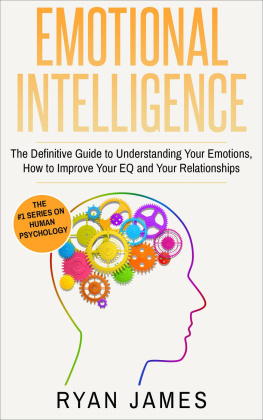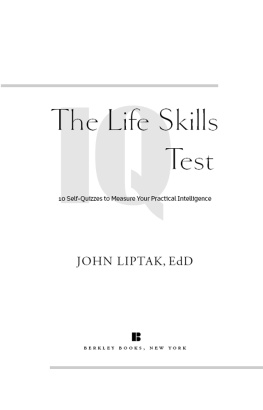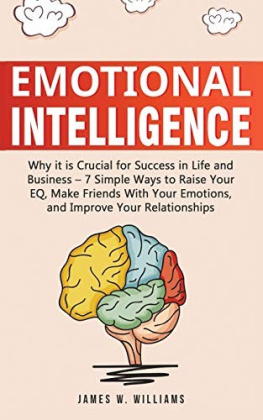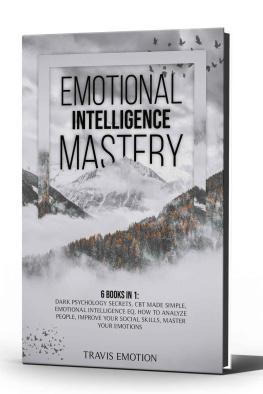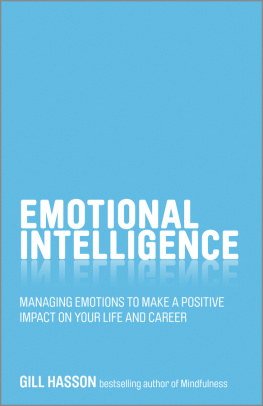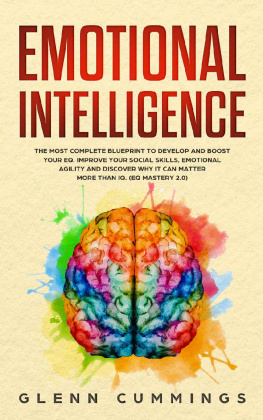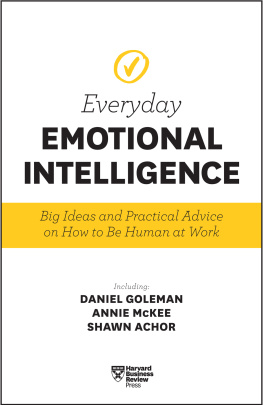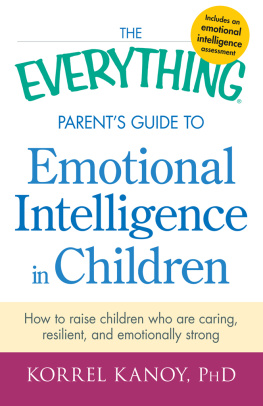Patrick Kilcarr - Leading an Emotionally Intelligent Life: Expanding Your EI to Make Courageous Decisions and Transform Your Life
Here you can read online Patrick Kilcarr - Leading an Emotionally Intelligent Life: Expanding Your EI to Make Courageous Decisions and Transform Your Life full text of the book (entire story) in english for free. Download pdf and epub, get meaning, cover and reviews about this ebook. year: 2022, publisher: Rowman & Littlefield Publishers, genre: Religion. Description of the work, (preface) as well as reviews are available. Best literature library LitArk.com created for fans of good reading and offers a wide selection of genres:
Romance novel
Science fiction
Adventure
Detective
Science
History
Home and family
Prose
Art
Politics
Computer
Non-fiction
Religion
Business
Children
Humor
Choose a favorite category and find really read worthwhile books. Enjoy immersion in the world of imagination, feel the emotions of the characters or learn something new for yourself, make an fascinating discovery.

- Book:Leading an Emotionally Intelligent Life: Expanding Your EI to Make Courageous Decisions and Transform Your Life
- Author:
- Publisher:Rowman & Littlefield Publishers
- Genre:
- Year:2022
- Rating:3 / 5
- Favourites:Add to favourites
- Your mark:
Leading an Emotionally Intelligent Life: Expanding Your EI to Make Courageous Decisions and Transform Your Life: summary, description and annotation
We offer to read an annotation, description, summary or preface (depends on what the author of the book "Leading an Emotionally Intelligent Life: Expanding Your EI to Make Courageous Decisions and Transform Your Life" wrote himself). If you haven't found the necessary information about the book — write in the comments, we will try to find it.
Expand your EI to make courageous decisions and transform your life based on Patrick Kilcarrs EQ-I 2.0 tool and his Master Trainer status.
Our emotional intelligence (EI) is an intensely personal inner landscape. It is an intricate interplay of self-regard, empathy, resilience, and other key competencies essential to leading a fulfilled and balanced personal and professional life. While it is unique for each one of us, taking into account our formative experience growing up and the myriad of others experiences we encountered up to this moment in time, there are specific emotions and behaviors that suggest we either are, or are not, socially and emotionally balanced. Our personal history is inescapable; what is not is our ability to direct the life we want from this point forward.
Yet the measure of emotional intelligence largely has been the province of educators, CEOs, entrepreneurs, and human resources professionals. They are keenly interested in how the concept plays out in educational and professional settings, and their assessments aim at maximizing organization integration and performance.
The problem is clear. If emotional intelligence is rooted in the individual, how can we use its assessment as a map for self-understanding and as leverage to immediate and future growth? A strong hunger exists among ordinary people to harness the extraordinary power of emotional intelligence as a pathway to personal transformation. Guides to accomplish this vital task in personal growth are few. While there is a great deal written about emotional intelligence, a gap exists demonstrating what it looks and feels like to achieve and maintain emotional intelligence, especially if our formative years were paved with drama, trauma and disappointment. This book brings to the reader how an emotionally intelligent life can be achieved if there is a desire for it.
Patrick Kilcarr: author's other books
Who wrote Leading an Emotionally Intelligent Life: Expanding Your EI to Make Courageous Decisions and Transform Your Life? Find out the surname, the name of the author of the book and a list of all author's works by series.

